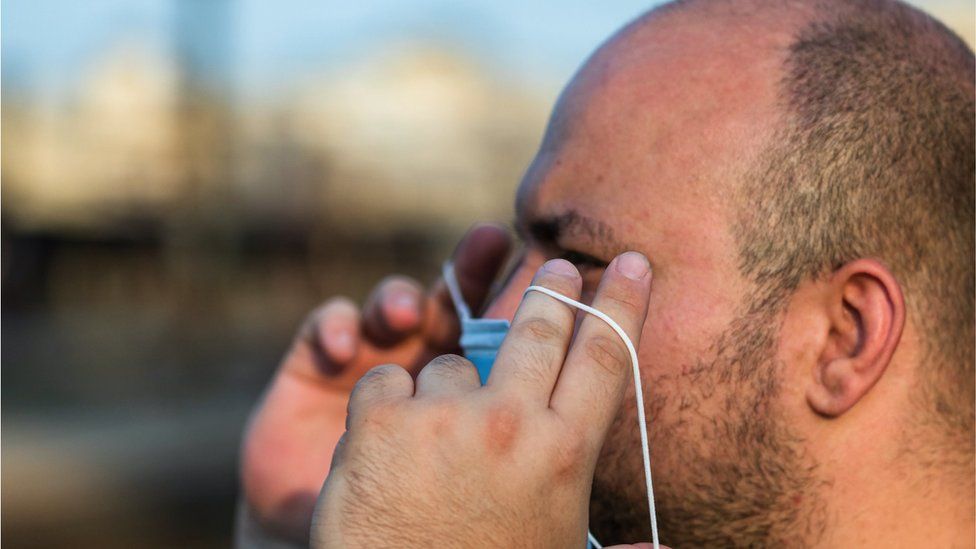Rare neurological conditions may occur after Covid vaccination, but the risk is far higher in people who catch Covid, new research suggests.
Doctors say the landmark UK study provides further reassurance that being vaccinated offers the best protection for overall health.
The investigators examined the NHS records of 32 million adults in England to assess any rare adverse events linked to Covid vaccines.
The study appears in Nature Medicine.
The scientists, from the Universities of Oxford and Edinburgh, compared the levels of neurological conditions seen within a month of having a first Covid jab, to those seen within a month of a positive coronavirus test.
One thing they looked for was a rare condition called Guillain-Barre Syndrome (GBS) known to be associated with certain infectious diseases and linked to some other vaccines.
GBS causes inflammation of the nerves and can lead to numbness, weakness and pain, usually in the feet, hands and limbs and can spread to the chest and face.
It can be treated and most people will eventually make a full recovery, but it can be very serious and even life-threatening for some.
In the study, following the first dose of vaccine, there were:
- 38 extra cases (compared to the baseline risk of getting the condition) of GBS for every 10 million adults having the Oxford-Astrazeneca vaccine
- 60 extra cases of haemorrhagic stroke (a bleed in the brain) for every 10 million adults having the Pfizer vaccine
Meanwhile for people who had a coronavirus infection, there were approximately:
- 145 extra GBS cases per 10 million with a positive test
- 123 extra brain inflammation disorder cases like encephalitis meningitis and myelitis per 10 million people
- 163 extra cases of myasthenia-like disorders (immune conditions affecting the nerves and muscles) per 10 million people
There was also an increased risk of bleeds on the brain in the first seven days after a positive Covid test, but risks returned to a normal, baseline level within a month.
Researchers repeated their study on a smaller population of vaccinated adults in Scotland and found the same link with GBS and the Astrazeneca vaccine. They did not see the same pattern of increased risks with the Pfizer jab.
They say it remains unclear why these links appear and suggest more studies are needed to understand this.

